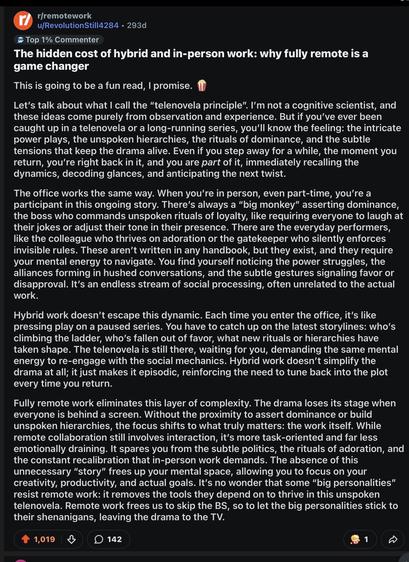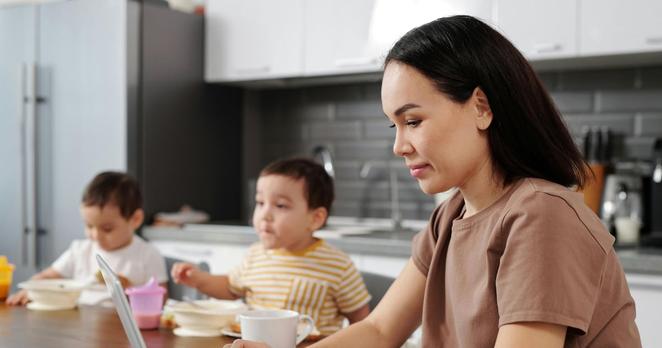It is not as though any Big Banks offer any kind of quick, efficient, face-to-face enquiries with members of the public any more.
#wanking #wankingfromhome
Interesting development. It seems companies can't just require people to come into the office, they must justify that decision when people are already working successfully from home.
#work #WFH https://www.smh.com.au/business/workplace/employers-warned-after-westpac-work-from-home-decision-20251022-p5n4h6.html
Australian banker wins right to work from home every day
Scientists have been studying remote work for four years and have reached a very clear conclusion: “Working from home makes us thrive” - One Workforce Hub
#remote #wfh #remoteWork #science #programming #workersRight #workingFromHome #WorkingFromHomeRocks
Apparently, the study was done at the University of South Australia.
I've found several other articles from earlier this year, all referencing that study, but none that provide links to the study results.
IRKSOME. I am IRKED.
cw: "after the COVID-19 pandemic"
Remote work: Working moms are paying a price for RTO orders
The unpredictability and additional responsibilities mothers face on a day-to-day basis eased slightly for some when remote work became a norm throughout … the COVID-19 pandemic. But recent changes requiring employees to come back to the office have upset that balance
women face challenges like the lack of flexibility and increased responsibilities at home with the reversal of remote working conditions.
Only nine per cent of Canadian workers prefer to work in the office full-time, according to a survey by the Angus Reid Institute published in July.
Research by Institute for Research on Public Policy from 2023 showed that nearly 75 per cent of completely remote employees reported positive impacts on job satisfaction, compared to around 53 per cent of hybrid employees, and in-office workers.
“People that had access to remote, flexible options were far more likely to stay home from work when they were sick and also keep their kids home from [school?] when they were sick,”
Early returns to office meant parents who no longer had the flexibility of remote work ran out of sick days, which eventually led them to sending their children to school when they were ill … Rather than the illness being contained at home, kids are at risk of spreading it on to each other and other families. Similarly, parents who run out of sick days and come into work may spread their illness to their colleagues.




